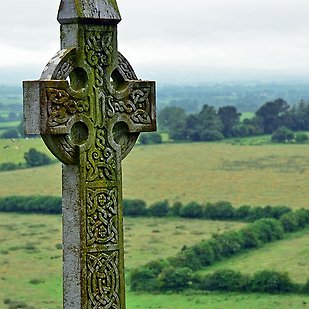Celtic Languages

The Celts once occupied vast swathes of Europe including modern France, Austria and Switzerland, as well as Ireland and Britain. Migration during the fourth century BC saw their influence stretch as far as Italy and Asia Minor. The Celtic group of languages belongs to the Indo-European language family and although continental Celtic languages only survive in early inscriptions and place names, the Celtic languages spoken on the Atlantic western seaboard survived into the modern period. These 'insular' Celtic languages may be divided into two groups: the Goidelic languages, consisting of Irish, Scottish Gaelic, and Manx; and the Brittonic languages, consisting of Welsh, Breton, and Cornish.
Although still minority languages in their respective countries, the number of Irish, Welsh and Scottish Gaelic speakers has grown over the past number of decades, helped in part by the fact that the internet and social media make it easier for speakers to engage despite geographical distance. Welsh is the most widely spoken of the Celtic languages, with over half a million speakers recorded in the last census. Irish is not only one of the official languages of the Irish state; it is also an official working language of the European Union.
While studying a language provides a unique window into understanding any culture, students may also study aspects of the rich history, literature and culture of the Celts without any knowledge of the Celtic languages by taking introductory courses in Celtic history and Irish literature. In these courses, students learn about the archaeological, historical and linguistic evidence for the existence of the Celts in Europe. They also learn about the rich vernacular literary tradition in Ireland by studying mythological tales and courtly love poetry in translation.
The study of Old Irish, with its archaic structure and vocabulary, is a key part of Indo-European linguistic research. In addition to the linguistic study of Old Irish, advanced students may also read some of these mythological and historical tales in the original vernacular.
Courses
Bachelor's level, basic courses
Bachelor's level, continuing courses
Contact
- Study counselling
- studievagledare@engelska.uu.se
- +46 18 471 12 47
